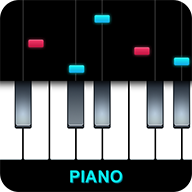Windows PowerShell 1.0已经发布,微软windowsvistablog上,
开发人员列举了Windows Vista中Windows PowerShell所提供的12项酷酷的功能:
1. 内置Cmdlets (即"commandlets")
Windows PowerShell中的所有Cmdlets都允许这样的动名词:get-service, get-process, stop-service, get-wmiobject.
2. 强大的通配符和操作对象
要得到以w开头的服务及其依赖服务只要输入:
PS> get-service w* | format-list DisplayName, DependentServices
3. 在犯错误前测试命令
Windows PowerShell 有意向独特的功能:Whatif ,可以不执行命令就告诉你命令执行结果.如:
PS> stop-service w3* -whatif
4. 获取副本
PowerShell 可以开始和结束所有命令的副本,可以在脚本中轻易测试命令并同时保存.
PS> Start-Transcript -Path c:demodfoshow.txt
PS> Stop-Transcript
5. 从命令行发布Windows对话
因为Windows PowerShell位对象而优化,可以向.NET Framework一样从命令行访问COM对象,下列命令告诉你的Vista机器发表"Windows Vista and PowerShell"字串.
PS> $spVoice = new-object -com "SAPI.spvoice"
PS> $spVoice.Speak("Windows Vista and PowerShell")
6. 使用Windows PowerShell访问诸如Windows Media Player 11等的应用程序
PS> $band = "The Posies"
PS> $player = New-object -com wmplayer.ocx
PS> $playlist = $player.mediacollection.getbyauthor($band)
PS> $player.openPlayer($playlist.item(0).sourceurl)
7. Windows PowerShell作为命令行存储计算器
PowerShell可以完成基本的计算工作
PS> 2*2
不过,Windows PowerShell也可以快速解决存储问题,例如,备份11GB的数据需要多少个700MB的CD.
PS> 11gb/700mb
那么,需要多少个1000GB的存储来备份每个320GB,共425个的Vista桌面呢?
PS > (320gb*425)/1000GB
8. PowerShell 用作日历计算
计算多少天到新年:
PS> ([DateTime]"1/1/2007" -[datetime]::now).days
9. 返回机器上某种类型文件的数量
Windows Vista有许多类型的事件记录和组策略文件等.下列命令是返回当前目录及其子目录中VBScript, Bat 和 PowerShell 脚本的数量:
PS> dir -include *.vbs, *.ps1, *.bat -recurse | group-object extension -noelement
10. 从命令行收集Windows System Assessment Tool数据
PS> get-wmiobject win32_winsat | format-table __SERVER, *SCORE -autosize
PS> get-wmiobject win32_winsat | select *score | out-chart -Title "System Assessment Scores by PowerGadgets"
11. 配置UAC(User Account Control)
PS> set-itemproperty -path HKLM:SOFTWAREMICROSOFTWINDOWSCurrentVersionPoliciesSystem -name ConsentPromptBehaviorAdmin -value 0
12. 管理BitLocker
PS > $drives = get-wmiobject -namespace rootCIMv2SecurityMicrosoftVolumeEncryption -class Win32_EncryptableVolume
PS> $drives | format-table DriveLetter, PersistentVolumeID -autosize
PS> $BitLockDrive = $drives[0]
PS> $BitLockDrive.GetProtectionStatus()
PS> $BitLockDrive.DisableKeyProtectors()
PS> $BitLockDrive.EnableKeyProtectors()




















































网友评论